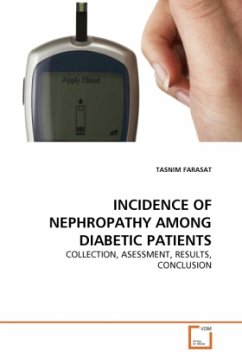Diabetes mellitus is a chronic disease which is caused by hyperglycemia. Glycaemia is a major risk factor to cause renal disease. Considering Pakistan national diabetes survey, Pakistan ranks 7th highest worldwide in the prevalence of diabetes. The importance of blood glucose control for the subsequent prevention of diabetic complications is well established This study was conducted on the incidence of nephropathy and assessment of kidney functions among the newly diagnosed diabetic patients from Pakistani population. This study was aimed to assess the overall prevalence and frequency of nephropathy among the newly diagnosed diabetic subjects and to study the potential risk factors responsible for the development of renal disease among diabetic patients. For the assessment of risk of developing chronic renal diseases in diabetic patients a cross sectional study on 200 patients including both male and female aged 40-65 years with recent onset of type 2 diabetes mellitus was done.This book will provide significant information about indicators of kidney function among Pakistani diabetic populations
Bitte wählen Sie Ihr Anliegen aus.
Rechnungen
Retourenschein anfordern
Bestellstatus
Storno








